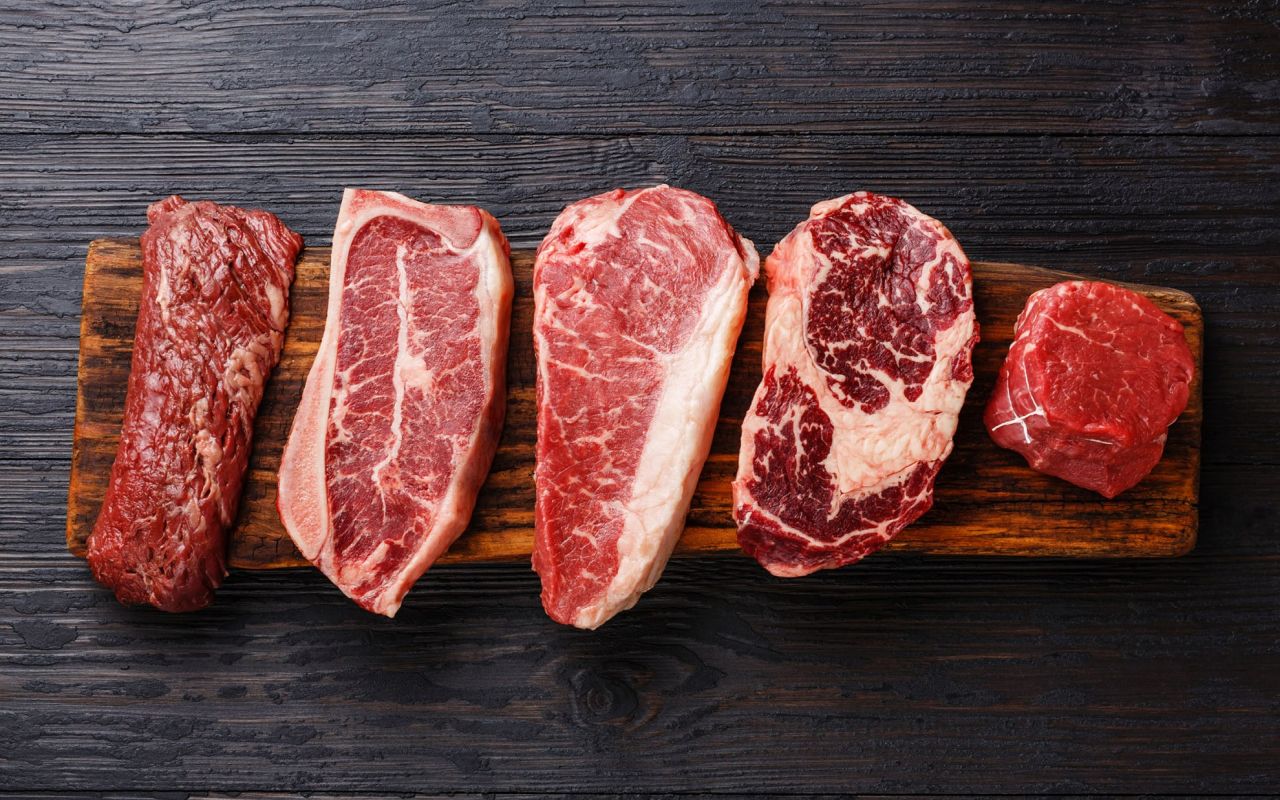Beef is the third most popular meat in the world. The widely consumed animal protein accounts for about 25 percent of meat production worldwide. While the source of the meat is known, the dietary and living conditions of the animal that deeply affect the quality of the protein, remain typically unfamiliar.
Highly trained specialists and meat-graders from the United States Department of Agriculture (USDA) have set the standards for various quality levels of beef. Defined in eight different grades, the USDA beef grades are regarded as symbols of safe, high-quality American beef.
The grade is primarily decided through the degree of marbling – the small specks of fat within the beef muscle. The degree of marbling provides flavor, tenderness and juiciness to beef and improves overall scrumptiousness. Other grading elements include animal age, color and texture of the muscle.
Prime
The best-quality beef, Prime is created from young, well-fed cattle. It has ample marbling, is produced in smaller quantities and is generally sold in hotels and restaurants. Prime grade beef is perfect for dry-heat cooking such as roasting, grilling and broiling.
Choice
This meat is high quality and is produced in bulks but contains less marbling than Prime. Choice roasts and steaks from the loin and rib are very tender, juicy and flavorful and are well-suited for dry-heat cooking.
Select
Slightly leaner than Prime and Choice, Select beef has even lesser marbling. It has less tenderness, flavor and juiciness than other higher grades. Select beef is ideal for slow cooking or marination before grilling or broiling.
Others
Standard and Commercial grade beef is produced from mature animals from the breeding herd. They are low-quality, lack marbling and tenderness. They are often sold as ungraded or store-brand meat. Utility, Cutter and Canner are other grades that are rarely retail but are usually utilized to make ground beef, processed and canned products.
